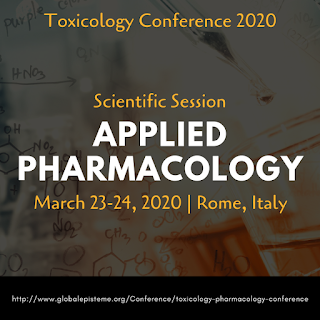Immunochemical Techniques
Antigens are macromolecules of natural or synthetic origin; chemically they consist of various polymers – proteins, polypeptides, polysaccharides or nucleoproteins. Antigens display two essential properties: first, they are able to evoke a specific immune response, either cellular or humoral type; and, second, they specifically interact with products of this immune response, i.e. antibodies or immunocompetent cells. A complete antigen – immunogen – consists of a macromolecule that bears antigenic determinants on its surface. The antigenic determinant is a certain group of atoms on the antigen surface that actually interacts with the binding site on the antibody or lymphocyte receptor for the antigen. Number of epitopes on the antigen surface determines its valency. For more: http://www.globalepisteme.org/Conference/toxicology-pharmacology-conference For abstract submission: http://www.globalepisteme.org/Conference/toxicology-pharmacology-conference/submitabstract...





